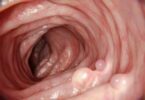The kidneys work tirelessly to remove toxins and excess fluid from the blood, for your well-being.
The kidneys are two small organs, located in the middle of the back; their main function is to remove waste and excess fluid from the body. They also eliminate the acid produced by the body’s cells and maintain a healthy balance of water, salts and minerals.
These two organs also perform hormonal functions and regulate blood pressure; they act to activate a form of vitamin D essential for the absorption of calcium and the production of red blood cells.
Despite being so small, they process and purify all the blood every 50 minutes, filtering around 180 liters of fluid per day.
Normal urine does not contain bacteria, viruses or fungi. The presence of blood, proteins or white blood cells in the urine could indicate the existence of an injury, infection or inflammation in the kidneys.
Causes:
The most common causes affecting the kidneys are diabetes and hypertension, although there are other hereditary and congenital diseases.
Progressive kidney disease can be remedied with treatments, however there are cases in which dialysis or a transplant must be chosen to resolve kidney failure.
If you suffer from any of these symptoms, go to a specialist, you may be presenting kidney disease: Decreased or increased urination, fatigue, chest pain, headache, dry skin, feeling cold all the time, feeling faint, dizziness or weakness, swelling in the hands or feet, etc.
Kidney Diseases:
Kidney diseases include: cancer, cysts, stones and infections.
For diagnosis, the specialist may request blood and urine tests to detect if you have kidney disease.
How to keep your kidneys healthy?
- Hydrate yourself: Drink enough water throughout the day.
- Healthy eating: Reduce salt intake, limit protein if you have kidney problems and choose fresh and natural foods.
- Blood pressure control: Keep your blood pressure levels under control.
- Diabetes control: If you have diabetes, strictly follow your doctor’s recommendations.
- Regular exercise: Physical activity helps you maintain a healthy weight and improves circulation.
- Avoid tobacco and alcohol: These substances can damage your kidneys.
- Regular visits to the doctor: Get regular medical checkups, especially if you have risk factors.
It is important to keep your kidneys healthy, because if they stop working properly, you can develop advanced kidney disease. That is why you must practice care to maintain a balance essential for your well-being.
I invite you to read another article:
Hair: the biological diary of our body
Font:
https://salud.nih.gov/recursos-de-salud/nih-noticias-de-salud/mantenga-sanos-sus-rinones









